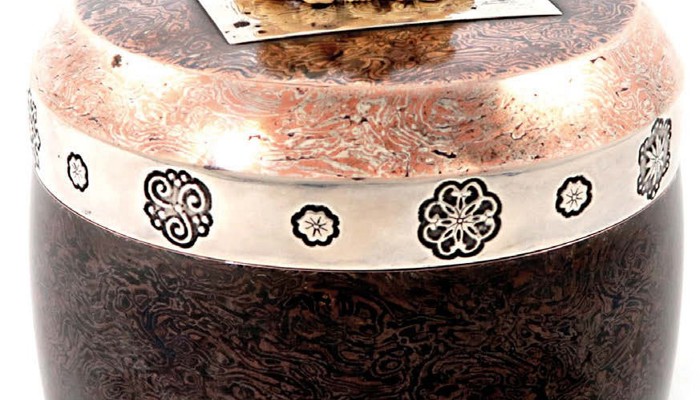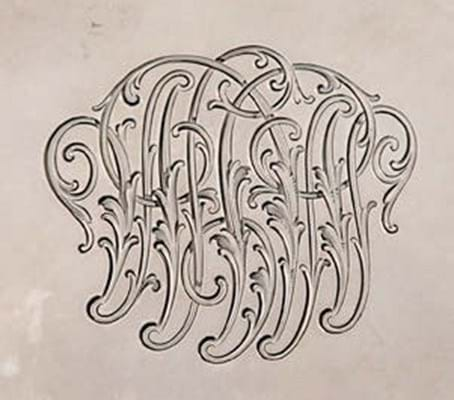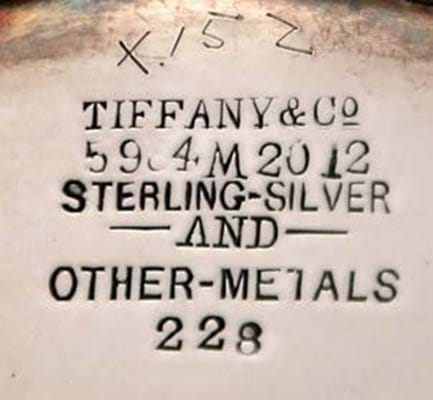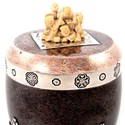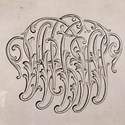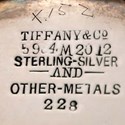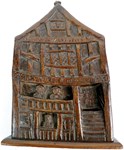It was made under the aegis of Edward C Moore (1827-91), who introduced the Japanese metalworking technique mokume (simulating wood grain) to Tiffany in the 1880s. A Meiji period ivory okimono of playful children provides the finial.
In addition to the factory mark, the base has a monogram for Mary Jane Morgan (1823-85), the second wife of the shipping and railroad magnate Charles Morgan (1795-1878). She was a regular Tiffany client.
An evidently similar item was included in the 10-day, $1.25m Morgan estate sale held by American Auction Galleries at New York’s Chickering Hall in 1886. Lot 706 in the sale was catalogued as Tea Canister, illustrating Japanese difficult workmanship in metals of ‘Moku-me’ or veins in wood, ivory qilin surmounting cover, gold lined.
However, this example (perhaps its pair) came for sale by family descent to the current owner.
Despite the problems inherent in an American object with ivory elements, such a fine example of ‘Japonism’ attracted many admirers. Estimated at a modest £1000-1500 for the auction on July 16, the winning bid from one of six phones was £21,000 (plus 25% buyer’s premium).


